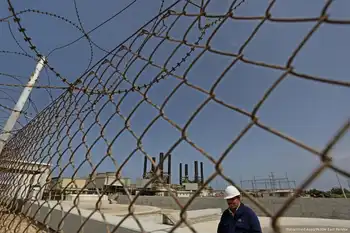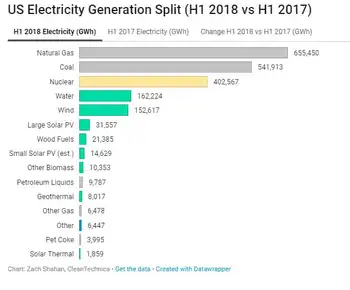Electric CO-Ops Warn of Potential Boom-And-Bust Cycle
Washington, DC -- -
Washington, DC -- "The electric utility industry risks falling into the boom-and-bust cycle prevalent in other sectors of the nation's energy industry," warned Glenn English, CEO of the National Rural Electric Cooperative Association (NRECA). "Driving prices and profits up when power is in short supply and down when it isn't. A situation that could be exacerbated by short term fluctuations in fuels such as natural gas," he said. In testimony before the House Agriculture Committee, Subcommittee on Conservation, Credit, Rural Development & Research, English drew attention to the increasing distance between America's electricity consumers and the big utilities that have historically served many of them. "In the era of deregulation, when generating capacity is separated from distribution systems, an every-man-for-himself business culture has set in," said English. "No longer do those producing the power have a responsibility to serve consumers; instead they have a responsibility to maximize profits for shareholders -- a situation, that if left unchecked, will lead to market power abuse." English noted that co-op consumers are, in many ways, protected from much of this cycle. "Electric cooperative consumers own the utility that serves them," he said. "Its only priority is providing reliable power at the lowest possible rate. In many cases they also own their power plants further insulating them from predatory or unscrupulous business practices." English pointed out that current generating capacity margins, averaging 10% below 1992 levels, are inadequate to fully insure against interruptions and cautioned that brownout and blackout conditions are likely in some markets this summer. "In the aftermath of FERC order 888, and the deregulation of wholesale power markets, no entity has clear responsibility for capacity planning," English said. "In the vacuum, market forces have prevailed offering no guarantee that infrastructure development will keep up with demand." English urged the subcommittee to consider the interests of consumers first when developing plans to increase transmission capacity. Stating member cooperatives' belief that the nation would be best served by reducing the financial risk of long-term transmission line ownership, English suggested providing Regional Transmission Organizations with the authority to approve facilities and enter them into the regional rate base thereby eliminating the risk of stranded investment and reducing the cost to taxpayers and consumers. English also warned against the repeal of the Public Utilities Holding Company Act, warning that without adequate protections, big power companies would quickly shed themselves of their least profitable customers, leaving those in rural and agricultural communities without any choice at all. "Historically, the fortunes of America's farmers rise and fall on the smallest and least predictable of variables, a quarter inch of rain or few cents per bushel of produce. Over the last 60 years, affordable, reliable electricity has been one of the few things upon which they could depend. We must work together to insure that they do not loose that small measure of stability and security," he said. SOURCE National Rural Electric Cooperative Association
Related News

Perry presses ahead on advanced nuclear reactors
WASHINGTON - Energy Secretary Rick Perry is advancing plans to shift the United States towards the next generation of nuclear reactors.
The Energy Department announced this week it has launched a new test facility at the Idaho National Laboratory where private companies can work on advanced nuclear technologies, to avoid the high costs and waste and safety concerns facing traditional nuclear power plants.
“[The National Reactor Innovation Center] will enable the demonstration and deployment of advanced reactors that will define the future of nuclear energy,” Perry said.
With climate change concerns growing, some Republicans and Democrats are arguing for the need for more…




